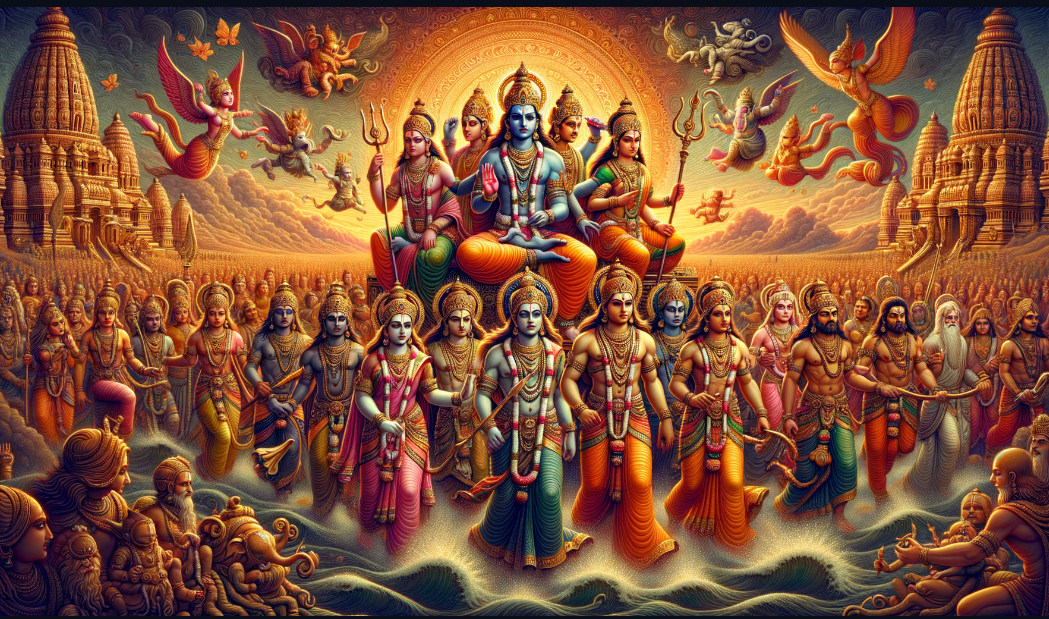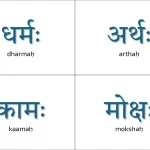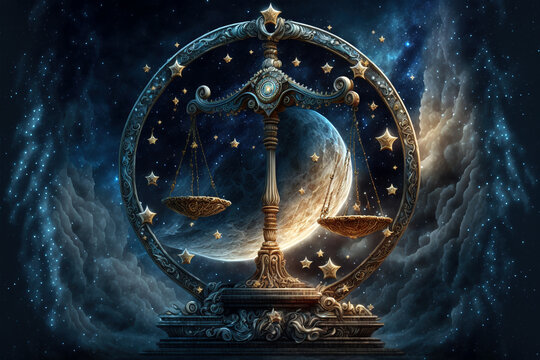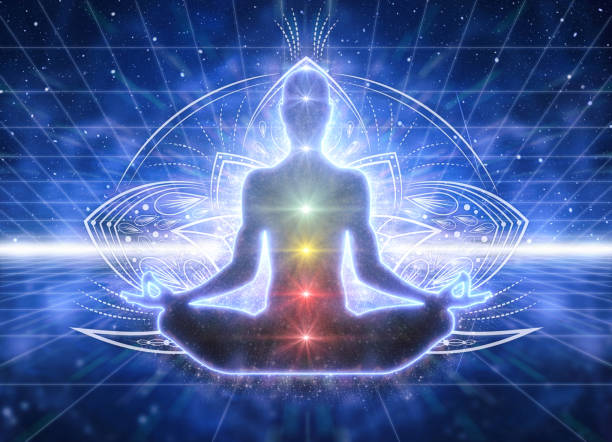The Concept of Dharma in Hinduism.

The Concept of Dharma in Hinduism
Dharma is a term that resonates deeply within Hindu culture, embodying principles of duty, righteousness, and moral responsibility. But what does Dharma truly mean in the context of Hinduism? It’s not just a concept; it’s a guiding force that shapes individual lives and society as a whole. From ancient scriptures to modern interpretations, the significance of Dharma has evolved yet remains central to understanding human behavior and ethical conduct.
As we delve into this intricate subject, we’ll explore various interpretations of Dharma and its practical applications in everyday life. We will also examine how Dharma intertwines with karma, creating an essential framework for moral duty. Join us on this enlightening journey through the teachings found in sacred texts like the Bhagavad Gita and discover how famous figures have interpreted these timeless concepts.
Whether you’re new to Hindu philosophy or seeking deeper insights into your own beliefs, grasping the importance of Dharma can illuminate your path forward. Let’s embark on an exploration of Dharma in Hinduism—its essence, relevance today, and its profound impact on our moral compass.
The meaning of Dharma in Hinduism
Dharma in Hinduism refers to the moral law that governs individual conduct. It encompasses duty, righteousness, and ethical standards vital for maintaining order in society.
This concept is multifaceted, often interpreted through various lenses—personal responsibilities, social obligations, or universal principles of right living. Each person’s Dharma can differ based on their age, caste, gender, and situation.
At its core, Dharma encourages individuals to act with integrity and purpose while aligning actions with the greater good. Such alignment fosters harmony within communities and promotes spiritual growth.
In ancient texts like the Vedas and Upanishads, Dharma serves as a guiding principle for achieving balance between personal desires and collective welfare. This idea reinforces how one’s choices not only affect themselves but also resonate throughout society at large.
The different interpretations of Dharma
Dharma in Hinduism isn’t a one-size-fits-all concept. It’s layered and rich, open to various interpretations depending on context.
For some, Dharma focuses on duty and responsibility. This aligns with societal roles—be it as a parent, teacher, or leader. Each role carries specific expectations that guide behavior.
Others interpret Dharma more personally. They see it as an inner moral compass guiding individual ethical choices. In this view, self-reflection becomes essential for understanding one’s true path.
Moreover, philosophical schools like Vedanta offer abstract interpretations of Dharma related to universal truths and cosmic order. This perspective transcends mere actions; it emphasizes alignment with the universe itself.
In essence, these diverse lenses create a tapestry where each interpretation adds depth to our understanding of Dharma in Hindu culture.
The role of Dharma in everyday life
Dharma plays a crucial role in the everyday lives of individuals within Hindu culture. It serves as a guiding principle that helps people navigate their responsibilities and moral duties.
For many, understanding Dharma means striking a balance between personal desires and societal obligations. This balance fosters harmony not only within families but also in communities.
Each person’s Dharma can differ based on factors like age, profession, and social standing. Recognizing these differences is essential for cultivating respect among diverse groups.
In daily interactions, practicing Dharma encourages ethical behavior and compassion towards others. Acts of kindness become intertwined with one’s sense of duty.
Living according to one’s Dharma enriches life experiences while promoting stability within society. Such adherence ensures that both individual growth and communal welfare go hand in hand, reinforcing interconnectedness among all beings.
The connection between Dharma and Karma
Dharma and karma are intertwined concepts in Hinduism, each shaping the other in profound ways. Dharma refers to one’s moral duties and responsibilities, while karma represents the actions taken based on those duties.
When individuals act according to their dharma, they accumulate positive karma. This principle emphasizes that fulfilling one’s obligations leads to beneficial outcomes in this life or future incarnations. Conversely, neglecting one’s dharma can result in negative karmic consequences.
The relationship between these two ideas highlights ethical living within society. It encourages individuals to align their actions with righteousness and virtue. By doing so, they contribute positively not only for themselves but also for others around them.
Understanding this connection helps clarify why adhering to dharma is crucial for personal growth and harmony within the community. The cycle of actions and reactions reinforces the importance of making wise choices aligned with one’s inherent duty.
How the concept of Dharma has evolved over time
The concept of Dharma in Hinduism has undergone significant transformation over centuries. Initially rooted in ancient texts like the Vedas, Dharma was primarily a cosmic law governing order and righteousness.
As society evolved, so did interpretations of Dharma. The epics, such as the Mahabharata, introduced more personal dimensions to this principle. Characters faced moral dilemmas that showcased varying shades of duty and righteousness.
During medieval times, different philosophies emerged. They emphasized Bhakti (devotion) alongside traditional duties, making Dharma accessible to broader audiences.
In modern contexts, the notion adapts further. People often interpret Dharma through lenses of social justice and environmental responsibility. This shift reflects contemporary values while staying true to its foundational essence.
Today’s understanding embraces both individual responsibilities and collective ethics—showing how flexible yet profound this ancient concept remains throughout history.
Famous figures and their understanding of Dharma
Mahatma Gandhi is often regarded as a modern embodiment of Dharma in Hinduism. He believed in non-violence and truth, advocating for civil rights through peaceful means. His understanding of Dharma was intertwined with service to humanity.
Another significant figure is Lord Krishna from the Bhagavad Gita. His teachings emphasize the importance of performing one’s duty without attachment to results. This concept guides many followers in their pursuit of righteousness.
Ramanuja, a prominent philosopher, emphasized Bhakti or devotion as essential to understanding Dharma. For him, aligning one’s actions with divine will was crucial for spiritual growth.
These figures illustrate diverse interpretations within Hindu culture that highlight individual responsibility while remaining connected to broader societal duties. Each perspective enriches our view on what it means to live according to Dharma today.
Applying the principles of Dharma in modern society
Applying the principles of Dharma in modern society can be transformative. In a world that often prioritizes individual gain, embracing collective responsibility is essential.
One way to embody Dharma today is by fostering compassion and empathy. This approach encourages individuals to consider the impact of their actions on others. Small acts of kindness can ripple through communities, creating a culture rooted in respect and understanding.
In professional settings, aligning work with ethical standards reflects one’s duty or Svadharma. By adhering to moral responsibilities, individuals contribute positively to their organizations and society at large.
Furthermore, engaging in social justice initiatives exemplifies active participation in upholding Dharma. Addressing inequalities fosters harmony and promotes the greater good.
Using technology responsibly also aligns with these teachings. Prioritizing integrity online cultivates trust within digital communities while reinforcing moral obligations toward one another.
Conclusion
The concept of Dharma in Hinduism is rich and multifaceted. It serves as a guiding principle for individuals, providing a framework to navigate life’s complexities. Understanding what Dharma means in this ancient tradition is essential for grasping its significance.
Dharma encompasses moral duties, ethical conduct, and the pursuit of righteousness. Its interpretations can vary based on context—be it individual circumstances or societal norms. This flexibility allows practitioners to adapt their understanding of Dharma as they grow and evolve.
Everyday life is deeply intertwined with the principles of Dharma. Whether it’s fulfilling family responsibilities or engaging in community service, these actions reinforce one’s role within the greater fabric of society. The connection between Dharma and Karma further illustrates this interplay; every action carries consequences that affect not only oneself but also others.
Throughout history, figures like Mahatma Gandhi have exemplified teachings from texts such as the Bhagavad Gita to articulate their understanding of Dharma’s importance. These philosophies remain relevant today, encouraging us to reflect on our own moral duties and responsibilities within our communities.
As modern society continues to change at an unprecedented pace, applying the principles of Dharma can lead to more ethical decision-making and compassionate living. By embracing these teachings from Hindu culture, we cultivate a deeper awareness of our impacts on those around us.
Engaging with the concept of Dharma invites us all into a broader conversation about values and integrity in today’s world. It’s not merely about following rules; it’s about fostering harmony both within ourselves and among others.










